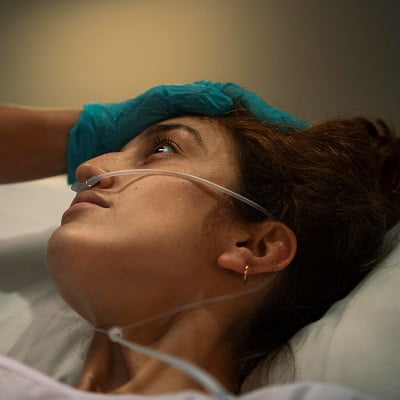
Do you ever fear what the dangers of not treating sleep apnea might be? Well, that’s all well and good; you don’t want to be awake at night with possible serious health risks. Sometimes, though, standard treatments just don’t do enough for many sufferers.
What is the role of jaw surgery in treating sleep apnea? Thus, the tightening of the airways is relieved because of the realignment of the jaw, so breathing is eased during sleep. It’s a last resort when nothing else goes well. This role can bring hope to those who are handicapped by sleep apnea. Promising treatment can lead to improved sleep quality and well-being.
Understanding Jaw Surgery for Sleep Apnea:
Jaw surgery is a more dramatic intervention that can manage sleep apnea. It rearranges the jaw to improve airway functioning. This procedure is helping to clear obstructions in the air passage by setting the upper and lower jaws in adjusting spaces. This reconstruction provides room in the air passage for easier airflow. This eases breathing when one sleeps.
Instant Results and Long-Term Benefits:
These patients, after jaw surgery, would already experience the effects of the intervention as they can breathe normally right after surgery. Most experience improvement in sleep immediately after the procedure. In the long term, the benefits include relief from sleep apnea and improved general health. Improvements resulting from better quality sleep and overall health can be quite dramatic. And post-treatment care is necessary to ensure optimal outcomes.
What is the role of jaw surgery in treating sleep apnea?
Jaw surgery is among the most common treatments for sleep apnea. This can be through jaw alignment; the surgery can help to counteract airway obstructions. The procedure typically involves having the surgeon align the position of the upper and lower jaws so that they open the airway and thereby allow better breathing at night or simply avoid the patterns of interrupted respiration altogether.
The main aim of jaw surgery is to create a better pathway for airflow. This improvement can lead to more restful and uninterrupted sleep. In fact, for most patients, this surgery is a solution when other treatments, like CPAP machines, do not solve their sleep problems.
Most of the post-surgical patients will wake up and find that their sleep quality has improved overnight. Long-term benefits may also occur. It may be very beneficial for those who have chronic obstructive sleep apnea or have structural complications within their jaws.
Benefits:
- Better Breathing: The kind of jaw realignment involved in the process clears obstructions from the airway. Thus, there is better airflow and fewer breathing interruptions at night.
- Better Quality of Sleep: With fewer interruptions, sleep can become more peaceful. Better quality sleep improves general sleep patterns and energy levels.
- Better Overall Health: Sleep quality can often be quite direct in its impact on a person’s health. It reduces fatigue and helps increase one’s daily functioning.
- Apart from the physical benefits, mental health also sees benefits such as relief from stress and tension so that anxiety levels decline. These lead to improved mood and better overall mental well-being.
- Long-term Relief: Usually, jaw surgery achieves one highly long-lasting result. It usually solves the problem permanently and not temporarily.
- Increased Daytime Alertness: With better sleep, one experiences reduced daytime drowsiness due to increased focus and productivity throughout the day.
Cost of Jaw Surgery in Islamabad:
The cost of Jaw Surgery in Islamabad has started at PKR 150,000 per jaw. But the fee of the treatment method would possibly vary depending on many factors; consequently, the fee may also vary from individual to man or woman.
Book Your Consultation Right Now!
Please complete the form below to schedule a consultation for Jaw Surgery in Pakistan. To make an appointment, contact the clinic by phone or chat. We will schedule your advance visit with our experts.






